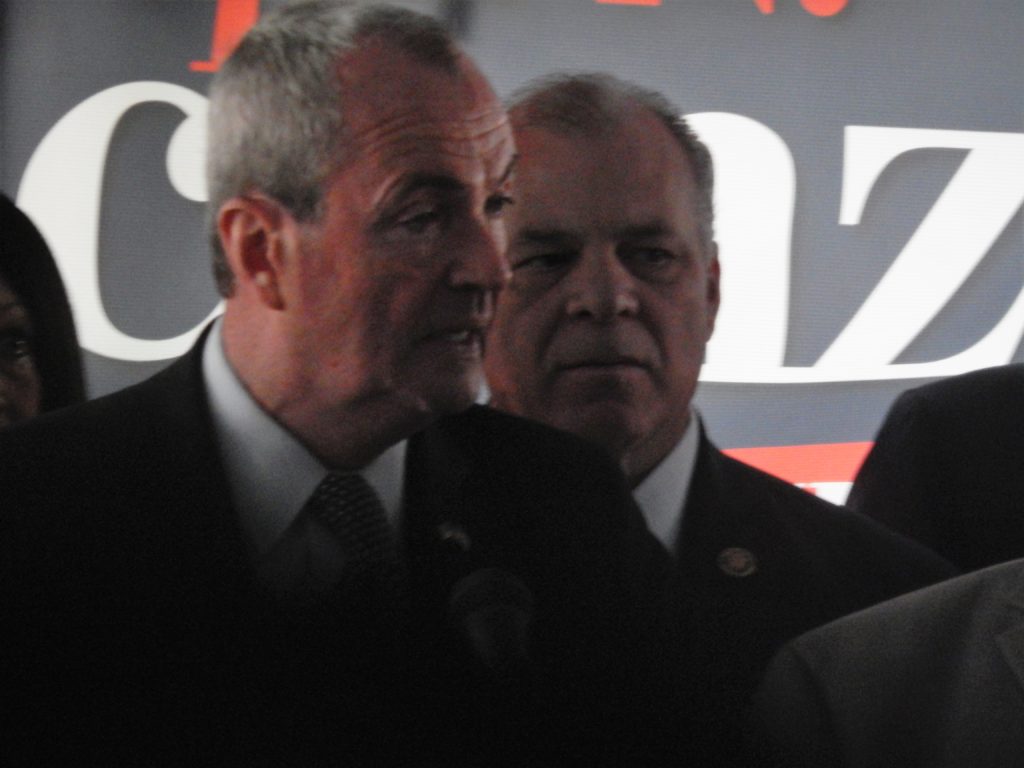Looming Reforms May Bring Lobbyist Associates Out of the Shadows

Calls for disclosure of shadow lobbying got a boost recently when Governor Phil Murphy included shadow lobbying as part of his ethics reform package.
The Governor’s recommendation follows on the heels of legislation introduced last session that would capture shadow lobbying by requiring professionals hired by lobbying firms to disclose their employment even though they do not directly communicate with legislators or the Governor’s office.
The legislation, sponsored by Senate President Stephen Sweeney and approved 5-0 by a Senate committee in December, is yet to be introduced in the current session.
Shadow lobbying refers to lobbyist firms employing individuals who do not directly communicate with elected or appointed officials even though they provide services to the lobbying organization that enhance the firm’s ability to influence public policy.
As with modern society in general, issues involving public policy have become increasingly complex. In response, the nature of lobbying has likewise become more sophisticated.
Though traditional, person-to-person, old school lobbying remains, firms are arming themselves with lawyers, political consultants, public relations professionals, pollsters, researchers, digital and social network experts, and strategic planners to help them navigate the increasing array of issues in order to successfully influence government.
As lobbying firms employ additional weapons to assist them in impacting government, lobbying laws need to be amended in order to acquaint the public of those professionals who ply their skills in assisting with this more sophisticated approach toward influencing the process.
By enacting legislation to require disclosure of shadow lobbying in New Jersey, the Legislature would be undertaking sensible reform in the best interest of the public.
In a 2017 column, I noted that “a new phenomenon called shadow lobbying has taken hold in Washington D.C.” and that “it, too, has implications for New Jersey.”
Even two years ago, it was clear that the lobbying community in New Jersey was every bit as innovative as federal lobbyists.
As with the growth of independent, outside groups, shadow lobbying may have started at the federal level, but now has trickled down to the state level. New Jersey is no exception.
Interestingly, just as the growth of independent groups has resulted in less transparency in the electoral process, the increase in shadow lobbying may be contributing to a decrease in the number of registered lobbyists and thereby to less overall disclosure of lobbying activity.
For example, the Center for Responsive Politics, alluding to activity at the national level, suggested in a 2017 report, “what has become more prevalent over the last decade are hordes of lobbyists deliberately moving into the shadows to avoid the consequences of registration.”
Moreover, 2,100 federal lobbyists in 2016 reported no lobbying activity though a majority still worked for the same employer.
According to the Center’s most recent information, there has been a 20 percent decline in registered lobbyists since 2007, from 14,827 to 11,862 in 2019.
New Jersey has witnessed a similar, though smaller, downward trend in registered lobbyists. In 2019 there were 947 registered lobbyists compared with 1,043 in 2008- a 9.2 percent falloff.
It is unclear exactly what caused this decline.
But one answer could be the fact that under current law, those that make significant contributions to lobbying firms without communicating directly with state officials have no legal obligation to register or report as governmental affairs agents (lobbyists).
Expansion of reporting of lobbying activity has been done before without major difficulties.
Before new laws took effect in 2004, the public had no idea how much lobbyists spent lobbying executive branch officials, or how much they expended on large media buys called grassroots lobbying because it seeks to mobilize the public for or against legislation.
Now they do.
Yesterday (March 9, 2020), the Election Law Enforcement Commission released its annual analytical press release on 2019 lobbying activity. The report showed that lobbying activity in New Jersey exceeded $100 million, the highest ever reported.
It is unknown how much of that lobbying was due to the help of professionals hired by New Jersey’s lobbying firms. However, if those consultants were required to disclose their names, services and fees, the public would get a much fuller picture of lobbying in the Garden State.
As Sheila Krumholz, Executive Director of The Center for Responsive Politics, has stated: “It’s time to revisit the rules and close the loopholes, so that disclosure is meaningful, providing comprehensive information . . .”
Jeff Brindle is the Executive Director of the New Jersey Election Law Enforcement Commission.
The opinions presented here are his own and not necessarily those of the Commission.





